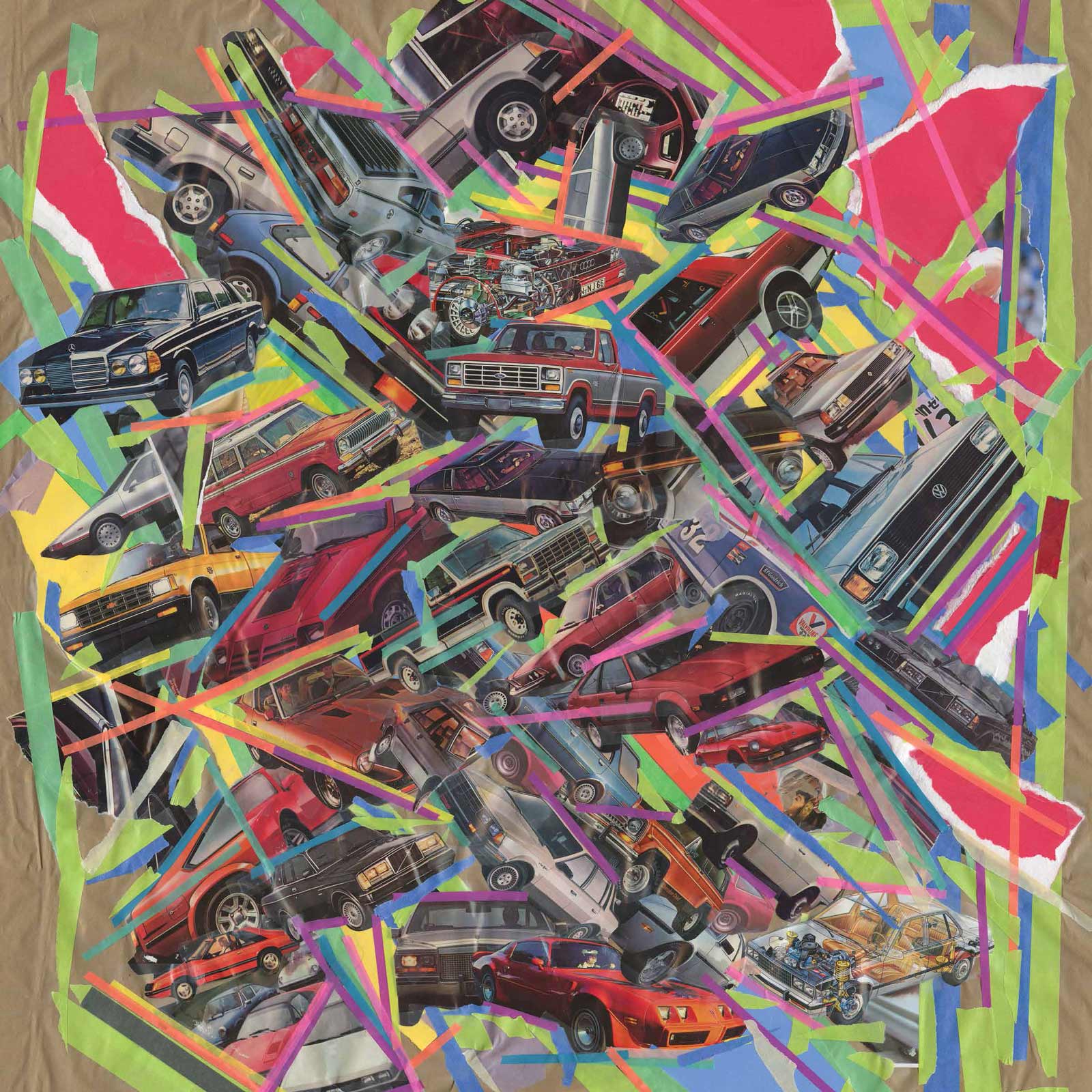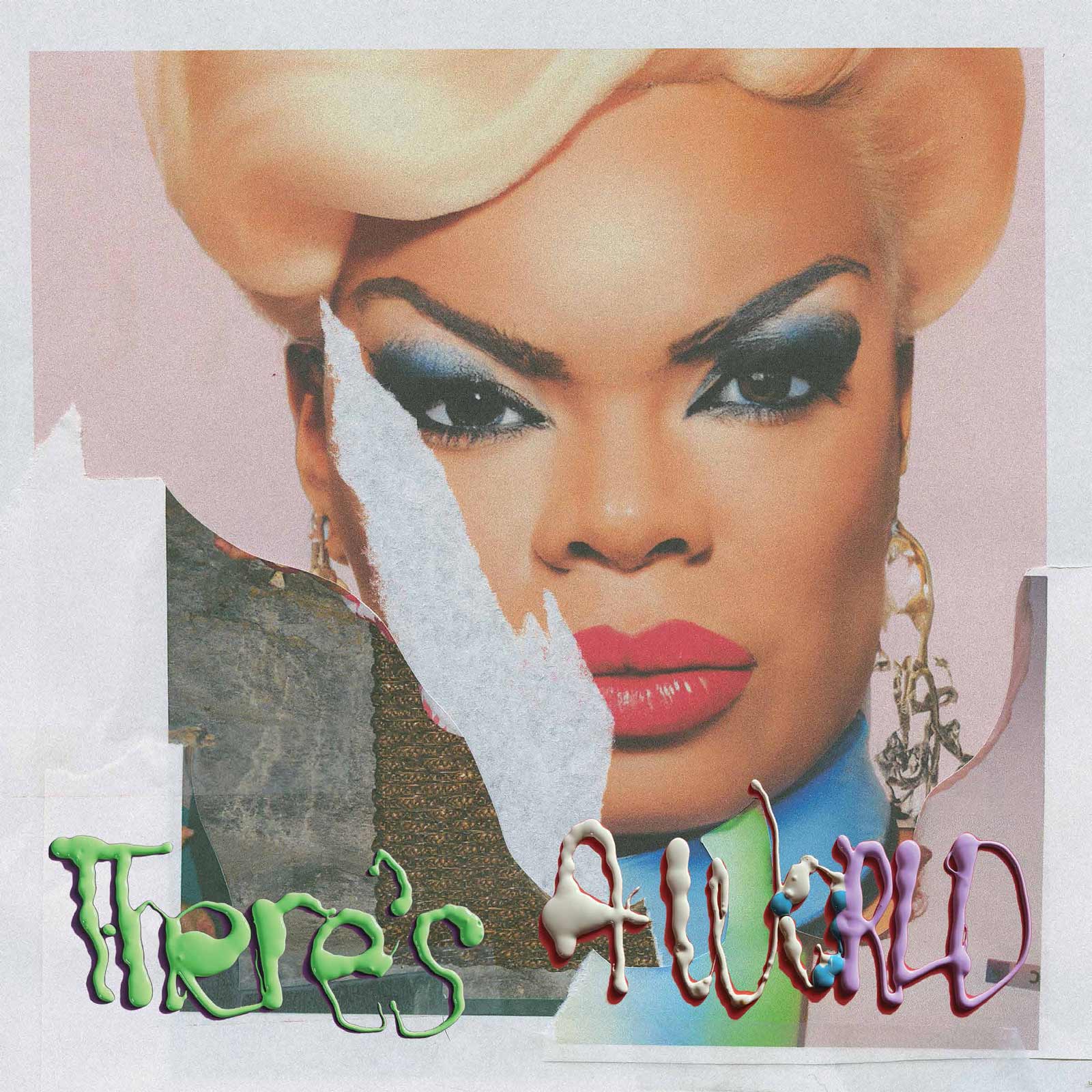On Javelin, the singer-songwriter takes his listeners on an Orphean journey through the end of a relationship and the world
Few people dare to utter the quiet part out loud. In Javelin’s title track, Sufjan Stevens sings his own contempt for the one he loves—creating a scene where a paramour throws a javelin at the object of their affection, then mulls over its near miss. “For if it had hit its mark / There’d be blood in the place / Where you stood / It’s a terrible thought / To have and hold.” Acoustic and breathy, Stevens’s voice communicates not shame, but curiosity as to how once all-encompassing love transmutes into ambivalence.
Javelin, Stevens’s 10th studio album, finds him in “full singer-songwriter mode,” nine years following 2015’s deeply autobiographical Carrie & Lowell—an Orphean journey that took the artist down to the depths of familial strife, as he reflected on the loss of his mother and the childhood in Oregon she rotated in and out of. Filled with devastating detail, the album’s process shocked Stevens, and he took time off to reckon with some personal revelations. Since then, he’s gravitated towards larger sound and collaborative albums, as with 2020’s The Ascension—lush, sweeping electro-pop—and 2023’s Reflections, a rollicking ballet performed by Timos Andres and Conor Hanick. Javelin, however, sees Stevens reclaiming his role as a modern bard, taking us on a mythic journey traversing romantic love and death.
“Goodbye Evergreen” signals the end of a stable, verdant relationship, the memory of it sweetly tinkling in the nostalgic “A Running Start.” “I know, I know the time has come / To ask you for a kiss / Don’t go, my lovely pantomime”—yet, we know it’s already too late. Love in the world of Javelin is ancient (“kiss me with the fire of the gods”) and punishing, as Stevens states on “Genuflecting Ghost”: “Now we dance in our catastrophe / Ramparts in the sky / That flash with horror / Let’s take these chances, no more amnesty.” There’s the sense that endings are inevitable—so we may as well make our bed and lie in it.
Stevens’s songwriting is at his best when he allows himself to lean into total obliteration or complete togetherness. On “Will Anybody Ever Love Me?,” he embodies legendary unrequited desire, describing faltering love as a violent lack. “Burn my body, point me to the undertow / Push me off into the void at last,” he pleads. “Will anybody ever love me? / For good reasons / Without grievance, not for sport.” It’s a lofty question—one that few singer-songwriters could ask in earnest without verging into the overly saccharine. Stevens manages to ground such vulnerability. “My Little Red Fox” acts as a foil, as the artist invites his beloved—this time as a hunted animal—into an embrace. Against melodic piano and a swelling chorus, he collapses nature and lover into one. “Kiss me from within / Now I sing it, won’t you / Kiss me like the wind that flows within your veins.”
In both tracks, Stevens voices what few of us would admit to ourselves: the all-encompassing desire to be loved, and to love in return. What Javelin sacrifices in terms of highly-specific, personal anecdotes—à la Carrie & Lowell—it gains with profound, communal catharsis. “So You Are Tired” considers a 14-year relationship, snapped by a single comment. “So you are seething with laughter / Was it really all just a joke? / I was a man indivisible / When everything else was broke,” Stevens whispers, before acknowledging that his addressee has already moved on, while he remains in love. A song like “Javelin” could only come after these intense meditations on self-destruction and self-effacement in the name of love—a contempt springing from both the inability to chop the self into pieces, and to dissolve the boundaries between two people.
No bard is ever truly alone. Javelin was recorded at his home studio in Los Angeles—stripped-down, but never sparse. Wanting this album to feel like “a testament to ’70s Los Angeles studio opulence,” he brought in vocalists adrienne maree brown, Hannah Cohen, Pauline de Lassus (aka Mina Tindle), Megan Lui, and Nedelle Torrisi; The National’s Bryce Dessner contributed acoustic and electric guitar. The singers function like a Greek chorus—on “Shit Talk,” an eight-and-a-half-minute breakup ballad, Stevens finds rapture in letting go. Like two spirits in flight, he and these voices call and respond, over and over again: “I don’t want to fight it at all” and “I will always love you” swell and fade in a lasting reverberation.
To make sense of the present, Stevens looks toward the past. His cover of Neil Young’s “There’s a World”—off the 1972 album Harvest—retains a fabled quality. For such a plainspoken record, this song reads like a riddle, with one poet ruminating on the work of another. Yet, as a last track, “There’s a World” feels ripe with possibility (“See what it brings, could be good things / In the air for you”) in the midst of an album that gleefully marches toward entropy. This afterlife, though, is one with purpose: “There’s a world you’re living in / No one else has your part.” With the promise that everything will fall apart, Stevens invites hope—that if we cannot love each other in this world, we just might be able to in the next.



























